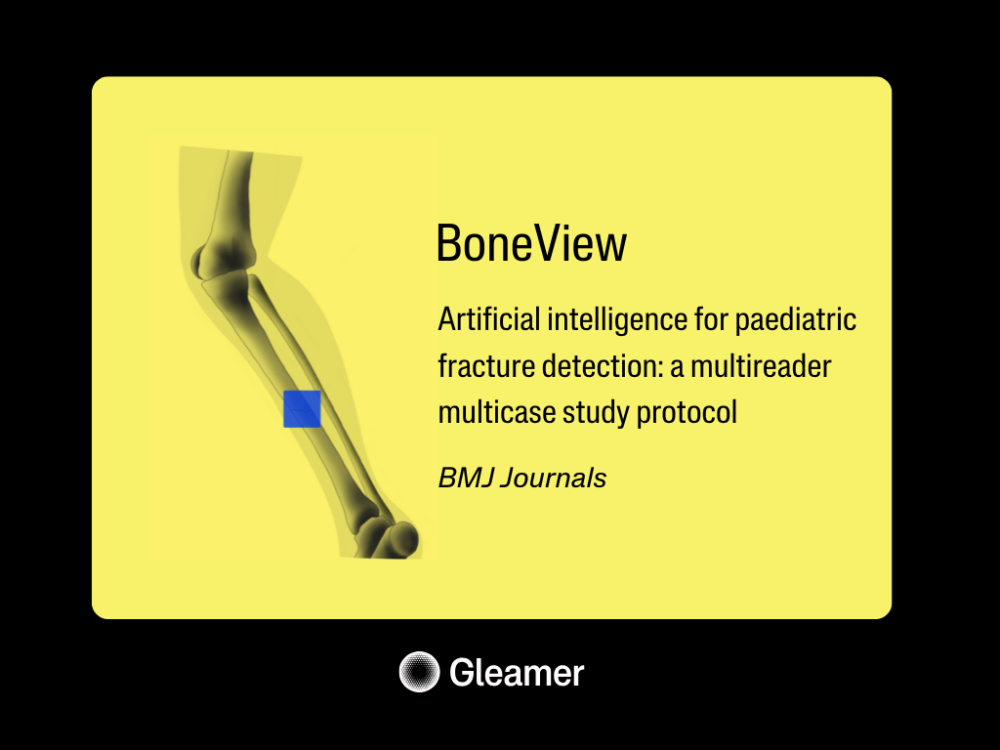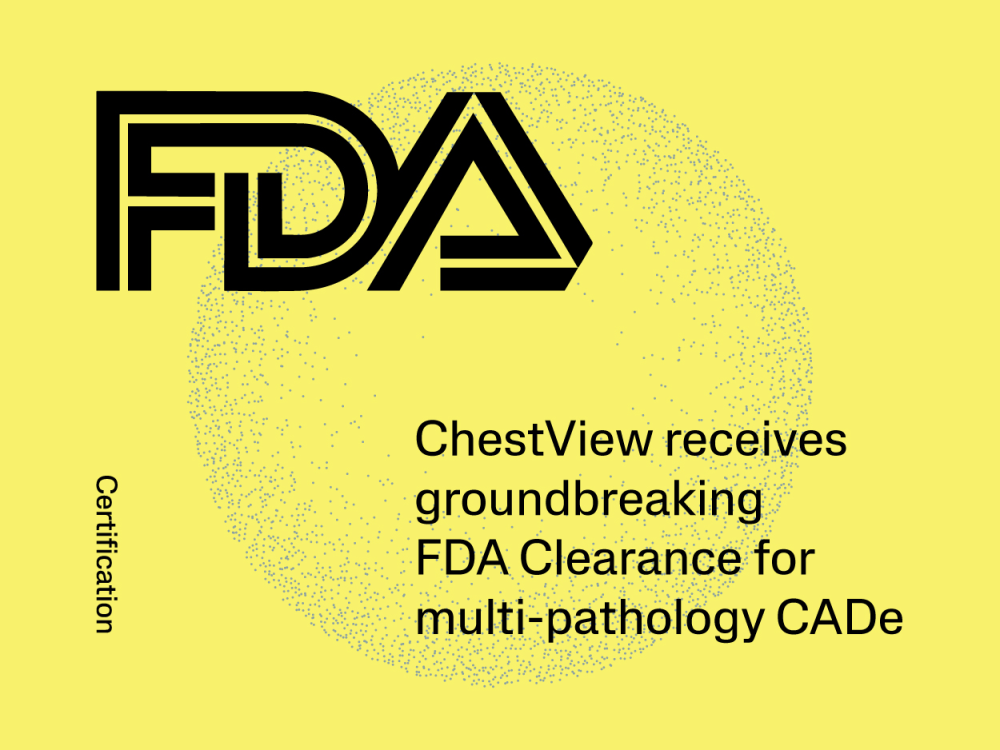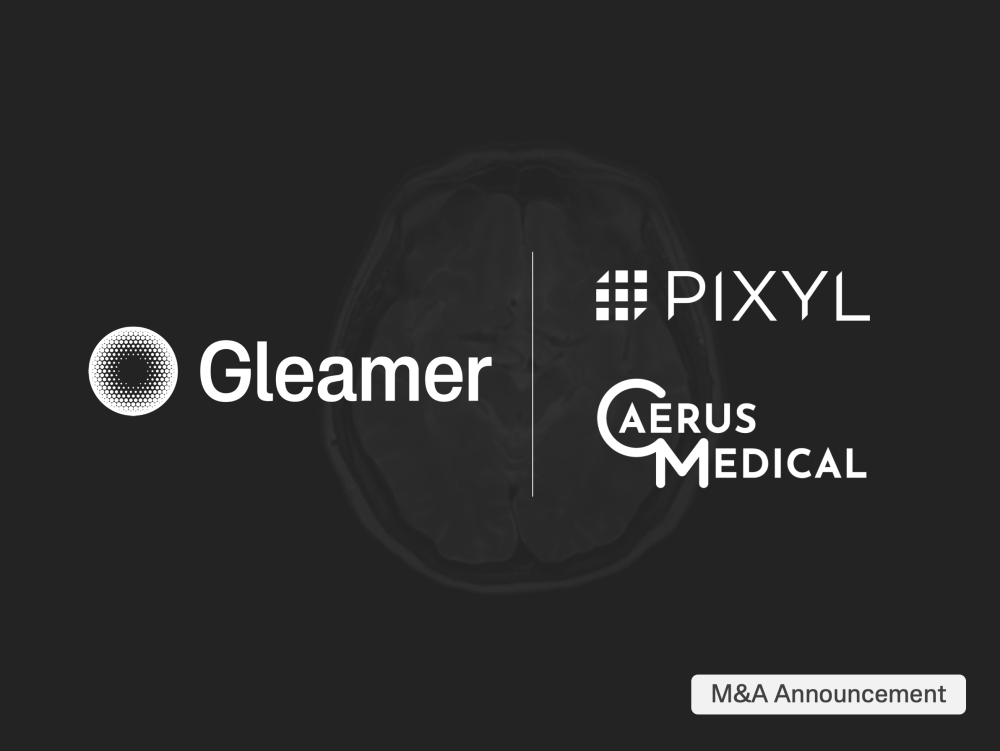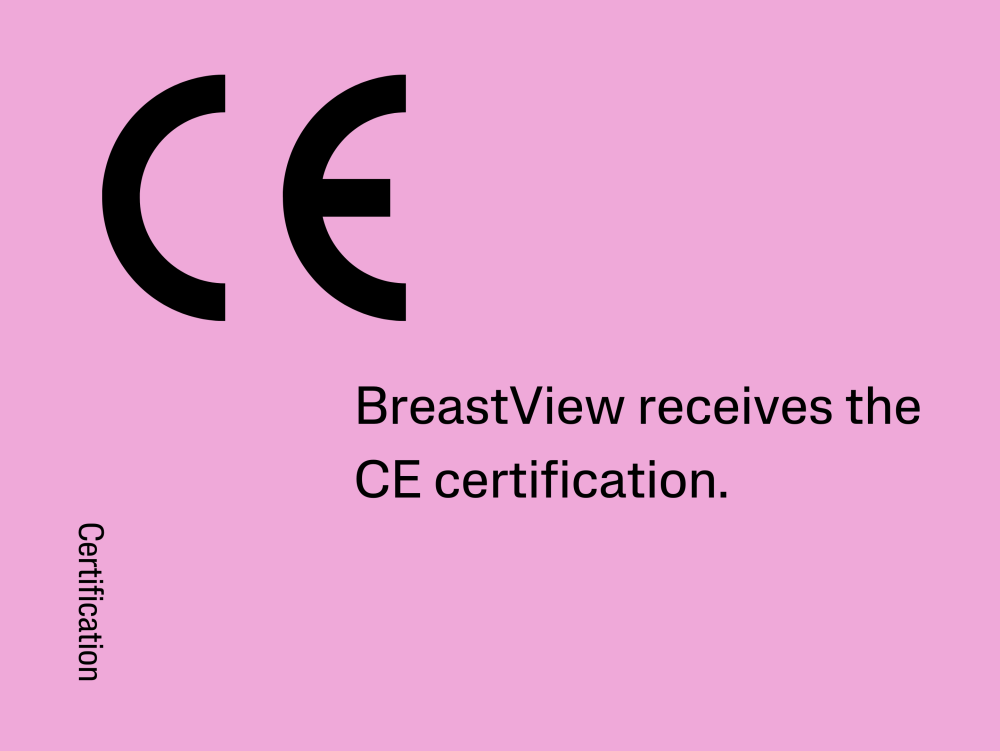AI for paediatric fracture detection: a multireader multicase study protocol

Introduction:
Paediatric fractures are common but can be easily missed on radiography leading to potentially serious implications including long-term pain, disability and missed opportunities for safeguarding in cases of inflicted injury. Artificial intelligence (AI) tools to assist fracture detection in adult patients exist, although their efficacy in children is less well known. This study aims to evaluate whether a commercially available AI tool (certified for paediatric use) improves healthcare professionals (HCPs) detection of fractures, and how this may impact patient care in a retrospective simulated study design.
Methods and Analysis:
Using a multicentric dataset of 500 paediatric radiographs across four body parts, the diagnostic performance of HCPs will be evaluated across two stages—first without, followed by with the assistance of an AI tool (BoneView, Gleamer) after an interval 4-week washout period. The dataset will contain a mixture of normal and abnormal cases. HCPs will be recruited across radiology, orthopaedics and emergency medicine. We will aim for 40 readers, with ~14 in each subspecialty, half being experienced consultants. For each radiograph HCPs will evaluate presence of a fracture, their confidence level and a suitable simulated management plan. Diagnostic accuracy will be judged against a consensus interpretation by an expert panel of two paediatric radiologists (ground truth). Multilevel logistic modelling techniques will analyse and report diagnostic accuracy outcome measures for fracture detection. Descriptive statistics will evaluate changes in simulated patient management.
Ethics and dissemination This study was granted approval by National Health Service Health Research Authority and Health and Care Research Wales (REC Reference: 22/PR/0334). IRAS Project ID is 274 278. Funding has been provided by the National Institute for Heath and Care Research (NIHR) (Grant ID: NIHR-301322). Findings from this study will be disseminated through peer-reviewed publications, conferences and non-peer-reviewed media and social media outlets.
Trial registration number ISRCTN12921105.



